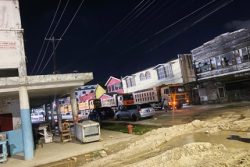GENEVA, (Reuters) – Sri Lankan attempts to “sabotage” a war crimes inquiry raise questions about the government’s integrity and are an affront to the U.N. body that set it up, U.N. High Commissioner for Human Rights Zeid Ra’ad al-Hussein said in a statement today.
“A wall of fear has been created that has undoubtedly served to deter people from submitting evidence,” Zeid said.
The U.N. Human Rights Council set up the inquiry in March to investigate war crimes allegedly committed by both government forces and Tamil rebels during the final stages of a 26-year conflict that ended in 2009.
“The Government of Sri Lanka has refused point blank to cooperate with the investigation despite being explicitly requested by the Human Rights Council to do so,” Zeid said.
“Such a refusal does not, however, undermine the integrity of an investigation set up by the Council – instead it raises concerns about the integrity of the government in question. Why would governments with nothing to hide go to such extraordinary lengths to sabotage an impartial international investigation?”
Sri Lanka had mounted a campaign of distortion and disinformation, he said, despite “compelling and widespread allegations that possible serious international crimes were committed”.
Earlier this week Sri Lanka’s Foreign Ministry said the inquiry was unprofessional, selective and biased. Zeid rejected the accusation.
Zeid also rejected as absurd an accusation that the investigation had been compromised by the arrest of a man with blank signed forms that could be filled in and submitted to the investigation.
“We don’t accept anything at face value. U.N. human rights investigators are trained to spot fraudulent submissions,” he said.








